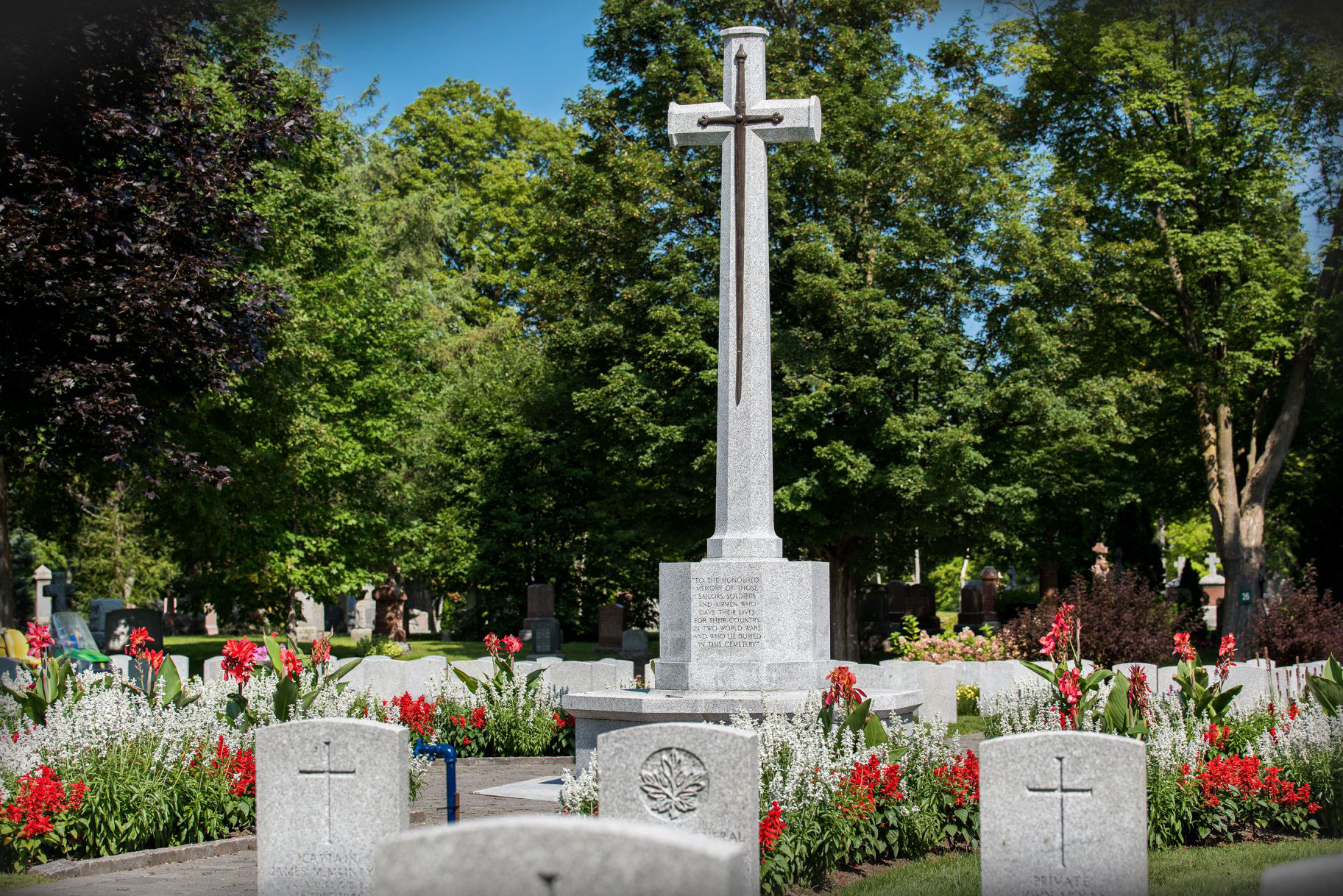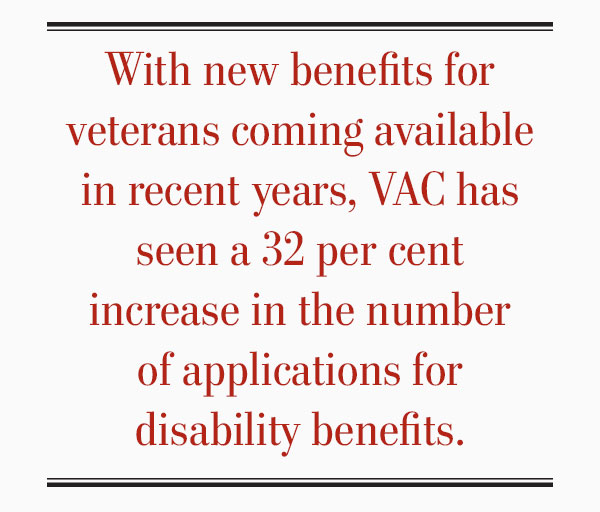
Cross of Sacrifice erected in honour and memory of all war veterans in 1959 at the National Military Cemetery of the Canadian Forces at Beechwood Cemetery, Ottawa. [Beechwood Cemetery]
The 2018 federal budget delivered by Finance Minister Bill Morneau on Feb. 27 contains new money allocated to Veterans Affairs Canada to help with the maintenance and repair of the graves and grave markers of veterans buried in Canada.
Budget documents say VAC is responsible for about 207,525 graves and headstones in Canada. These are the graves of low-income veterans or those whose deaths are attributed to their military service. These are separate from the 110,364 Canadians who died overseas and whose graves and memorials are maintained by the Commonwealth War Graves Commission.
VAC conducted a study of needed repairs in 2017 and found there was a backlog of 45,000 graves in Canada requiring repairs. With existing levels of funding, the study found that it would take more than 17 years to complete the work. The budget proposes to provide $24.4 million over the next five years for cleaning, restoring or replacing headstones and fixing foundations.
That is one of the highlights of the budget for veterans. The budget also sets the framework for the Pension for Life program announced by Veterans Affairs Minister Seamus O’Regan shortly before Christmas (“Disabled veterans to see a return to pensions for life,” March/April).
The budget will also provide $42.8 million over two years to increase service delivery capacity at VAC. With new benefits for veterans coming available in recent years, VAC has seen a 32 per cent increase in the number of applications for disability benefits. VAC has a target of processing benefits within 16 weeks from when an application has all the information required. However, The Canadian Press reported that the department had a backlog of 29,000 applications at the end of November.

The Royal Canadian Legion said it was encouraged by the commitments in the 2018 budget. “The investments outlined are a step in the right direction,” said Dominion President Dave Flannigan. “That said, the Legion is disappointed to once again see no focused investment in national defence in terms of our military and their equipment.”
Other points that the Legion saw as favourable include:
• A tax credit for service dog handlers. The Legion has long advocated for an expansion of the Medical Expense Tax Credit, which would recognize that psychiatric service dogs can play an important role in helping veterans cope with conditions such as post-traumatic stress disorder. The credit will cover some of the expenses of keeping a service dog.
• Healthy Seniors Pilot Project in New Brunswick. The budget provides $75 million through the Public Health Agency of Canada to support a pilot project in New Brunswick studying the challenges faced by seniors over age 65. A higher proportion of New Brunswick’s population is over 65 compared to other provinces. The project will specifically look at the challenges that senior women face as they tend to live longer than men do and are more likely to live alone. As well, the responsibility of caring for aging spouses and parents predominantly falls on women.
• Investment in cannabis research in Canada. The Legion has supported research into cannabis and how it can be used to help veterans with mental-health issues.
• Increased research money for science and technology. The Legion is hoping some of the funds will go to needed research into the effects of past use of the malarial drug mefloquine by the Canadian Armed Forces.
Advertisement






















